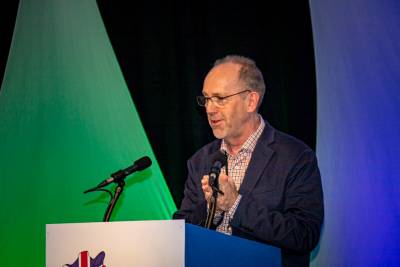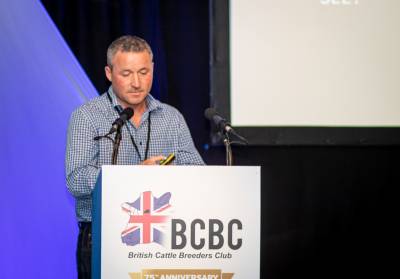

Sustainability is about more than just net zero. The BCBC conference heard from speakers working on other areas of the sustainability challenge.
Livestock are part of the climate change problem, so it’s important to address the issues so that they can be part of the solution, said Prof Geoff Simm, Director of the Global Academy of Agriculture & Food Systems at the University of Edinburgh.
Climate change brings a ‘twin challenge’ for agriculture. “One is to reduce and mitigate that impact and the other is to adapt at the same time. There is some change that we can’t stop now, and agriculture is very exposed to some of that change.
“It is difficult for us to acknowledge that livestock are part of the problem, but it is important that we address the opportunities to make them part of the solution as well.”
Beef is an important source of nutrition and the global market for it is growing, he said. Beef cattle can play a role in supporting biodiversity through grazing and some breeds are part of agricultural biodiversity themselves.
“We have to still think about reducing methane emissions,” he warned. This could be achieved through diet, additives, breeding and vaccines. “Additives can reduce emissions by about 25% and there’s a range of those in various stages of approval, we’re not there yet.”
Optimising the use of beef from dairy production would be increasingly important. “It has approximately 60% less methane production per kilo because you’re spreading that cost of the breeding herd across milk and subsequent beef enterprises.
“Beef has a mixed balance sheet, and we need to aim to enhance our assets and reduce our liabilities.
“Breeding is key – we need faster gain in appropriate traits, alongside better uptake, incentivisation and reward for the people that really are improving sustainability. Science and technology are vital but they alone can’t fix the challenges, other interventions are needed too,” he concluded.
Canadian farmer Arron Nerbas encouraged delegates to be open to change and to other people’s viewpoints. “There is real change coming for agriculture – pressures that we have never seen before. It is important to be ahead of the curve.”
Those pressures included net zero, carbon foot printing and climate change. “Can we afford to be wrong?” He suggested that many cattle farmers put their cows on a pedestal and instead should be considered more like employees. “But we treat them very well and they have an excellent benefits package,” he said.
Yorkshire farmer and pedigree Salers breeder Terence Pye discussed the importance of easy calving cows. He encouraged delegates to consider the importance of pelvic area in breeding decisions. This could not be determined by eye but should be measured and compared to guidelines when choosing breeding stock, he said.
“We need to get our cows in a position that we don’t need to assist calving. We need to make sure our heifers’ pelvic areas are right, pick the right bulls according to their EBVs and keep the myostatin gene out of our cows. Then we will end up with the effortless easy calving that some of us are already experiencing, which has a dramatic difference on your profits, animal welfare and your whole lifestyle.”
Photography Credit @Jenny Wood Photography